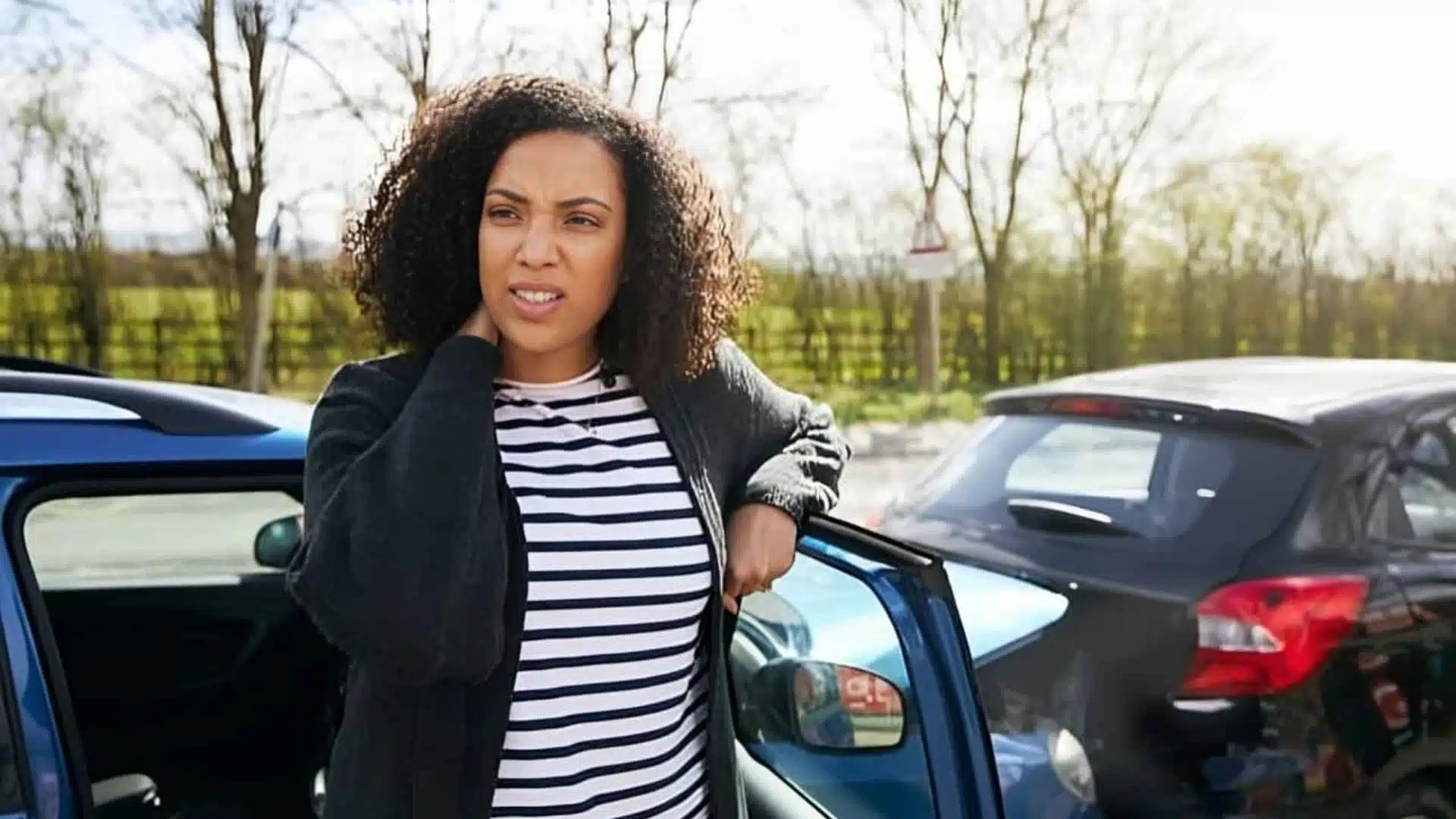
Did you know that 25% to 33% of car accident survivors experience delayed car crash symptoms? Following a car accident, you may experience physiological and psychological symptoms that may appear days or even weeks later. If left untreated, they may lead to long-term health complications.
This blog will explore eight common delayed car accident symptoms and the significance of seeking medical attention for each one. By understanding them, you can proactively protect your health and recovery.

You may experience headaches days or even weeks after a car accident. Imagine a dull, nagging pain that spreads throughout your brain and then slowly gets stronger until it seems like a drum is beating inside your skull. These headaches can be debilitating, interfering with your ability to concentrate, sleep, and enjoy everyday activities.
There are several possible causes of delayed headaches following a car accident.
You should consult a healthcare professional if you get persistent headaches following a car accident. Early detection and treatment of a concussion or other severe brain injuries can prevent permanent brain damage and other complications.
Neck and shoulder pain often creeps up days or even weeks after a car accident. At first, the adrenaline rush might mask discomfort. Still, the pain may become more apparent as you recover.
Such pain can range from mild stiffness to severe aching. It may be accompanied by a reduced range of motion, making tasks like turning your head or lifting your arms difficult. Several injuries following an auto accident can cause neck and shoulder pain.

Given the potential for these conditions to develop into chronic issues, you should seek medical evaluation if you have neck or shoulder pain after a car accident. A healthcare professional can accurately diagnose the problem through physical assessment and imaging tests, such as X-rays or MRIs.
Lower back pain after a car accident often develops gradually. It might start as a dull ache and worsen over time, making it difficult to stand, sit, or bend. The impact of the collision can cause various injuries to your lower back.
Seek medical attention if you experience persistent lower back pain after a car accident. Early diagnosis and treatment can help prevent the pain from becoming chronic, addressing any underlying issues before they get worse.

After a car accident, you might gradually feel numbness or tingling in your extremities. It might feel like pins and needles or as if your hands, arms, feet, or legs are asleep, making it difficult to perform daily tasks.
These symptoms often arise from nerve-related issues. For instance, nerve compression can occur when nerves are squeezed or pinched, causing numbness or tingling. Another potential cause is a herniated disk.
Seek medical attention if you feel numbness or tingling after a car accident. Ignoring them can lead to more severe complications and even permanent nerve damage.
Sleep disturbances are often overlooked as delayed car crash symptoms. You might not experience trouble sleeping immediately, but it can develop over time as the effects of the accident begin to take a toll and disrupt your sleep patterns.
Various factors can cause difficulty sleeping. Physical pain from injuries like whiplash or back pain can make it hard to relax and fall asleep. The emotional stress can also keep your mind racing at night. In worse cases, more severe emotional reactions like PTSD can develop, causing insomnia.
If you struggle to sleep after a car accident, talk to a healthcare professional. They can help determine the causes of your sleep problems and recommend appropriate treatments.

You might not experience dizziness or balance issues immediately, but they can develop sometime after a car accident. Symptoms can range from feeling lightheaded or unsteady to feeling a spinning sensation or vertigo. These issues can make walking, standing, or even concentrating difficult.
Several things can cause dizziness or balance problems. Vestibular dysfunction, which affects your inner ear and balance system, is one. The sudden impact of the collision can affect the delicate structures of your inner ear, leading to feelings of dizziness or unsteadiness. A concussion can also disrupt your sense of balance and orientation.
Dizziness or balance issues following a car accident can indicate more severe underlying conditions. If they persist, talk to a medical professional.
Changes in vision or hearing might not be immediate after a car accident. These symptoms can develop gradually and might be subtle at first.
Several conditions can cause these sensory changes following an accident. TBI happens when the brain is jolted or injured during the impact. A TBI can disrupt the brain's normal functioning, affecting areas responsible for processing visual and auditory information.
Additionally, internal injuries, such as damage to the structures of the ear or the optic nerves, can also result from the force of the accident, leading to hearing or vision changes.
Our hearing and vision play considerable roles in our daily lives. You should undergo a comprehensive medical examination if you experience changes in your vision or hearing after a car accident.

Feeling exhausted for an extended period can be a delayed symptom after a car accident. This persistent fatigue can make concentrating, working, engaging in hobbies, or any other part of your daily life difficult.
Several factors can contribute to persistent fatigue following an accident. Pain from fractures, sprains, bruises, and other injuries can be emotionally draining. The stress and anxiety surrounding the accident can also affect our mental health, leading to mental and emotional fatigue.
In some cases, a concussion or other mild traumatic brain injury can disrupt the brain's normal functioning, causing persistent fatigue and difficulty concentrating. Consult a professional healthcare provider if you find yourself struggling with ongoing fatigue following a car accident.
The aftermath of a car accident can be complex, with symptoms often emerging days or weeks later. Ignoring such symptoms can lead to chronic pain, limited mobility, and other long-term health problems. Watch out for these eight delayed car crash symptoms.
Remember: early intervention makes for a more successful recovery. Seek immediate medical attention if you experience these common delayed symptoms following a car accident. Dr. Nick O'Connor of Newport Beach Pain & Wellness is a car crash doctor in Newport Beach who provides specialized care to address your needs and health concerns. He can effectively treat many post-accident injuries using nonsurgical therapies, such as chiropractic care and physical rehabilitation. These treatments restore your body's natural alignment and function, promoting healing and pain relief.
Let’s improve your chances of a full and speedy recovery. Book an appointment today!
